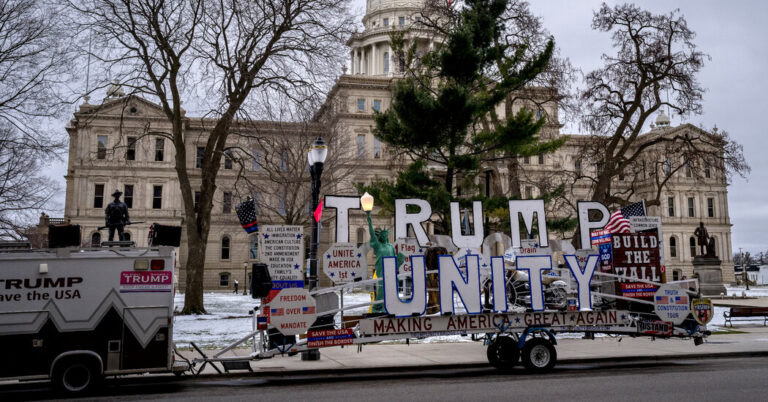Opinion | The Fantasy of Brexit Britain Is Over
Though now giving way to a familiar nightmare, that fantasy seemed for a while to envelop the country. The strange cultural and emotional feel of high Johnsonism is captured by two of the most watched broadcasts in British history, both of which took place during his tenure. The first was Mr. Johnson’s address to the nation on March 23, 2020, declaring a national lockdown. The second was the Euro 2020 final, in which England stood a realistic chance of winning against Italy, on July 11, 2021. Both broadcasts, watched by tens of millions of people, briefly synthesized a moment of national unity. Both portended the suspension of normality in the name of a national struggle, vaguely linked to folk memories of World War II.
The eerie quiet of lockdown, with its empty streets, visitations from wildlife and ritual clapping for essential workers, was matched by the flag-bedraggled, drunk and delirious mania of crowds roaming empty commercial streets and fervently chanting, “It’s coming home!” These were distinctly nationalist moments, but they were not identical. One nationalism was top-down, the other grassroots. One was “British,” establishment nationalism, the other “English,” with more proletarian accents. Yet together they briefly manufactured a sense of nationhood.
It was, of course, hardly a time of national idyll. Tens of thousands of older Britons needlessly died in overrun hospitals because of delays in declaring lockdowns. Food bank use rose to an all-time high, with over 2.5 million people receiving packages. By the end of 2020, nine in 10 low-income families had experienced a serious deterioration in their income and the proportion of people reporting clinically significant depression and anxiety tripled, rising from 17 percent to 52 percent. Even so, the precarious project of national unity, supported by enormous public spending to manage the pandemic, briefly worked: The Tories led in the polls, impervious to scandal and discontent.
In September last year, things started to shake loose. Fuel shortages, created by a dearth of truck drivers, began to corrode Mr. Johnson’s support. In December, the first accounts of illegal partying in 10 Downing Street, the prime minister’s official residence, emerged. By February, rising energy prices were squeezing living standards and food banks were overwhelmed by soaring demand. Hospitals, overstretched and underfunded, struggled with a backlog of around six million patients, and understaffed airports canceled flights. At Westminster, the crisis enveloping the country was transmuted into a growing clamor to remove Mr. Johnson. He clung on for a while, but by midsummer it was over.
Check out our Latest News and Follow us at Facebook
Original Source







